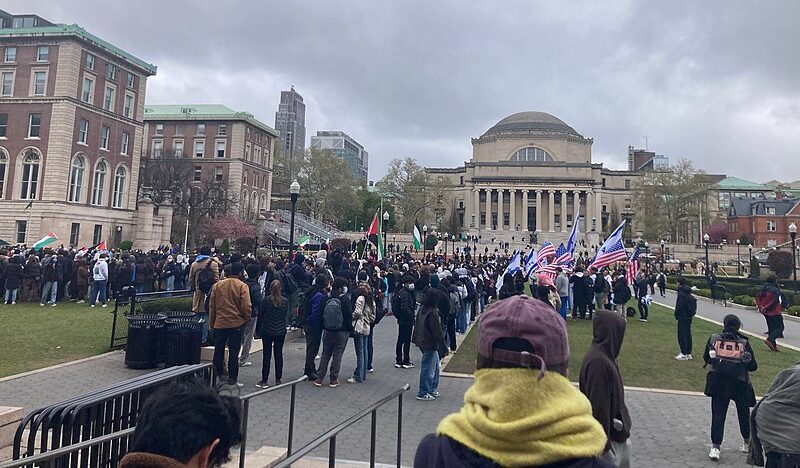Chaos at Columbia University as police clash with student protesters
A wave of student protests have erupted in the United States, as students clash with universities over disagreement surrounding the handling of the Israel-Gaza conflict.
The protests have led to the arrests of hundreds of students, sparking controversy on both sides of the debate.
On 17 April, a small number of protesters gathered in encampments at Columbia University to protest against Israeli military action in the armed conflict between Israel and Gaza. Protesters also called on the university to cut ties with companies seen to support Israel’s actions in the war.
Minouche Shafik, Columbia University’s president, claimed that the student protest created a “harassing and intimidating environment” for other students.
The protest was later shut down by the New York Police Department (NYPD), with more than 100 students arrested.
Rashida Mustafa, a doctoral student at Columbia, claimed the police shutdown of the protest was “a shock to us all”, sparking further advocacy from students.
Following the shutdown of the initial encampment by the police, a further encampment was set up by Columbia University students
Shafik’s decision to call for the NYPD to shut down the protest has come under scrutiny, with a resolution calling for an investigation into the leadership of the university passed by a vote of 62-14. Proposals to censure Shafik, however, were not passed.
Following the shutdown of the initial encampment by the police, a further encampment was set up by Columbia University students, with more tents and a larger set-up than the original encampment.
The police shutdown of the protest in Columbia has acted as a catalyst for further protests across the US. Aiming to replicate the protests at Columbia, students at Yale University in Connecticut, the University of Southern California (USC), and Emerson College in Boston have all held their own mass demonstrations.
In all these cases, either the state police or national guard were called to the protests. This led to 48 arrests at Yale, 93 arrests at USC, and a further 108 arrests at Emerson.
The university is a private campus and the group had been violating the orders – it was a trespass at that point
Kelly Munz, spokesperson for Los Angeles Police Department
Ahmad Hasan, a campaigner and USC graduate, stated that the protests reflect the influence students have on wider attitudes in the US: “It has always rested on students to tell people that this is not right.”
However, Kelly Munz, spokesperson for the Los Angeles Police Department, told journalists that protesters had refused to leave the area when requested by officers: “The university is a private campus and the group had been violating the orders – it was a trespass at that point.”
Student protests have continued in the US, as negotiations continue between students and institutions. Student protesters have continued to call upon universities to divest from companies responsible for weapons manufacturing and to cut ties with Israeli-backed academic institutions. However, university representatives have warned that the protests could be posing safety issues, with USC monitoring access to their campus.

Comments